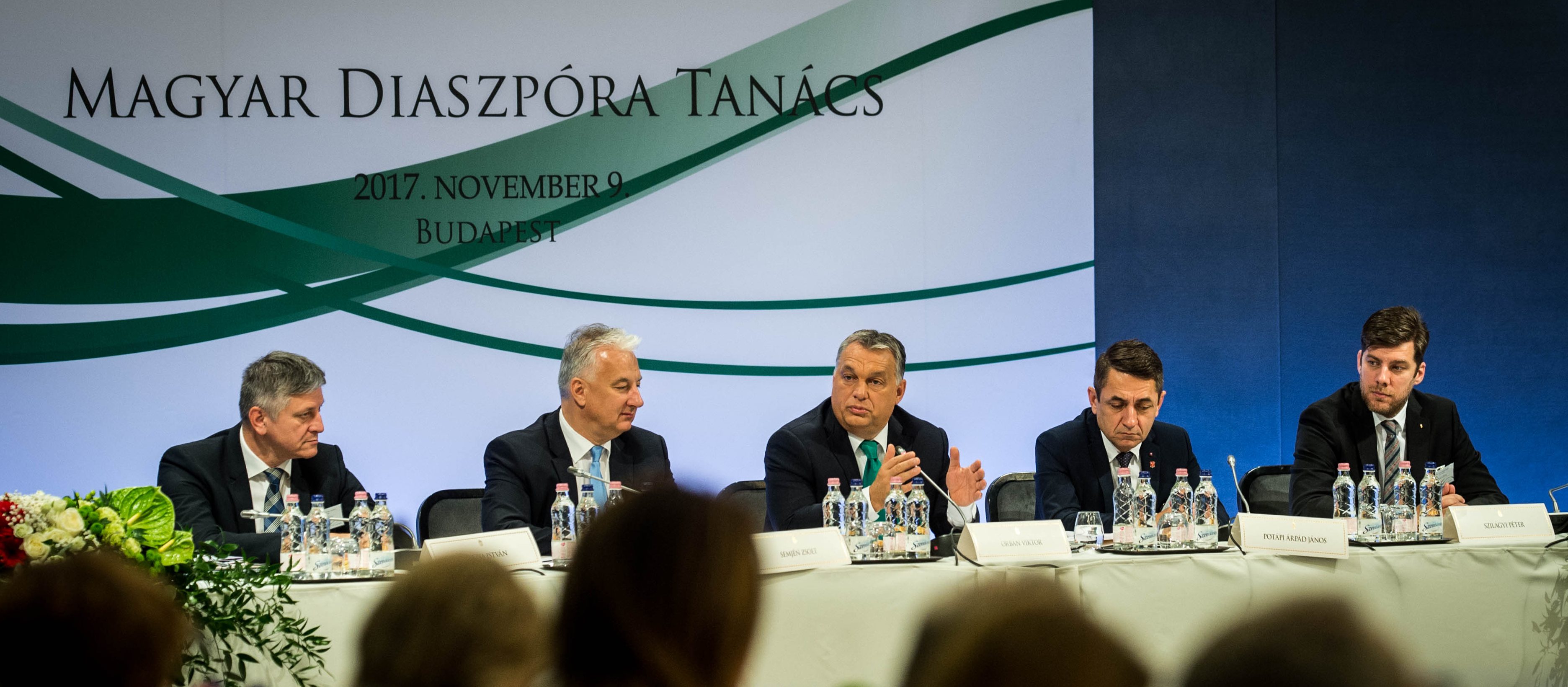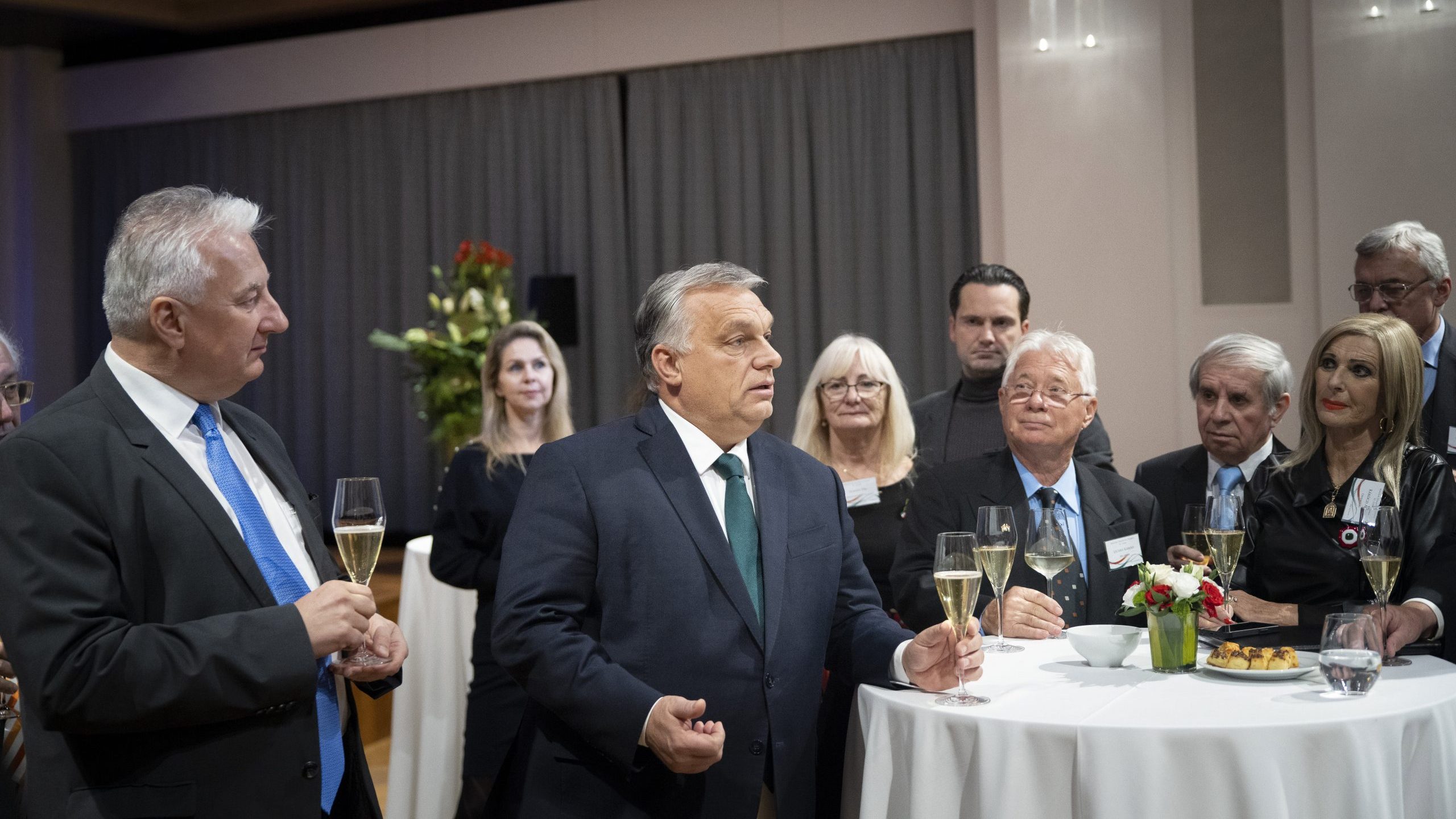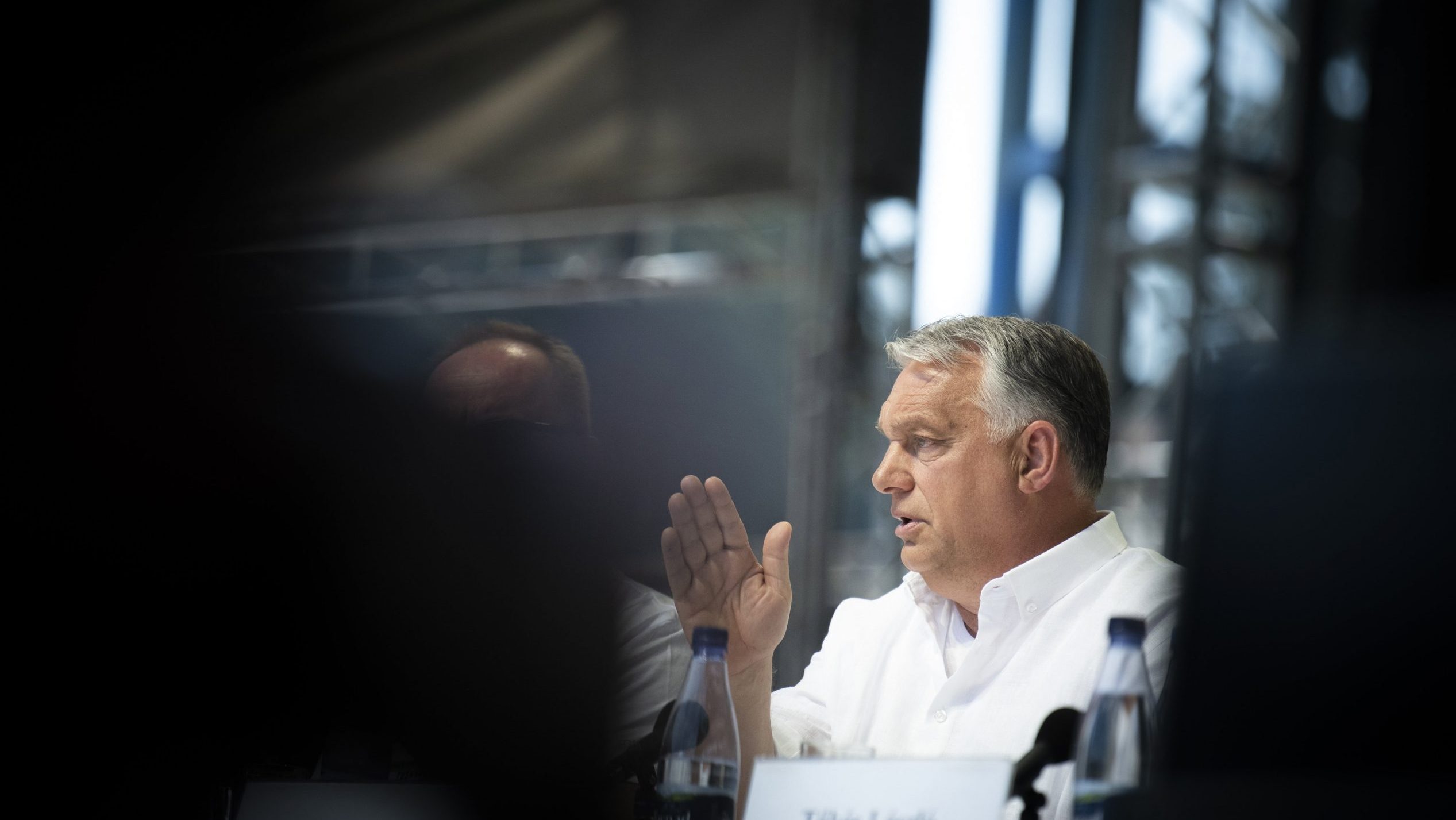
Speaking about the 2018 parliamentary election, the Prime Minister asked the following:
“Do we want to protect all that we have achieved, and do we want to continue to see Hungary a non-immigrant country? Or shall we give in, and accept what is dictated to us: that our free nation should again be subjugated, and accept that others […] turn us into an immigrant country which does not build on its national culture and Christian traditions?”
Therefore, he said, the historic significance of next year’s election points far beyond political parties.
Regarding immigration, the Prime Minister said that the forces intent on creating a “United States of Europe” see nations and Christian traditions as an obstacle, and are therefore deliberately transporting into Europe multitudes from alien cultures which “in many cases truly deserve our pity”. He remarked that no country outside Europe transports millions of migrants into its territory.

In Mr. Orbán’s words, today Europe comprises two halves: immigrant countries; and those which are not – and have no intention of becoming – immigrant countries. The future of the EU depends on the conditions accompanying the coexistence of these two groups of countries, he stated, reiterating that the Hungarian people do not want their country to become an immigrant country.
He stressed that when Hungary protects its borders and insists on its sovereignty, it is also protecting Europe and Western culture.
The Prime Minister added that he sees the international criticism and attacks levelled against Hungary as a sign of appreciation and respect – with the exception of a few “vulgar voices”. In his opinion, attacks are only launched against those who represent something that is significant and worth taking a position on. Consequently, criticism of the Hungarian economic model and immigration policy show that “we represent something which, at the very least, we should make a matter for debate”.
The Prime Minister said that economically Hungary is now standing on its own feet, has put its finances in order, and is no longer reliant on the money of others.

Speaking about the results achieved, he highlighted the fact that today some 4.4 million Hungarians are in employment, and all are paying taxes. In Hungary those who want to work are able to do so, without exception, he said, adding that the challenge is no longer to provide jobs, but to provide workers for the jobs on offer.
The Prime Minister pointed out that, while it has not been easy, banks and multinational corporations have also been persuaded to take part in a more proportionate sharing of the tax burden: the “smarter ones” among them have realised that international companies and banks operating in Hungary also have a vested interest in the country’s long-term success.
He stated that the Government is pursuing policies that support families – something which is also key to the nation’s continued existence.
The Prime Minister noted that Hungarian society is essentially family-centred, but for many years it has been heading towards demographic disaster. In 2016 Hungary’s fertility rate increased from 1.25 to 1.49, which Mr. Orbán described as a promising sign; he concluded, however, that Hungarian society has not yet corrected the disastrous trend of population decline.
Mr. Orbán pointed out that the Hungarian government does not accept the concept of trying to solve this problem with immigrants. The goal, he said, is to maintain the level of population without resort to external sources, by increasing Hungary’s average fertility rate to 2.1 by 2030.
He stated that the impact of economic changes is not only visible statistically, but also in everyday life.

Referring to US President Donald Trump’s slogan “America First”, Mr. Orbán said that his government is pursuing a policy of “Hungary First”.
He also welcomed the result of the recent election in Austria because it means that the Hungarian government and the prospective Austrian administration “will find it easier to play in the same key” on the most important European issues.
The Prime Minister described recently adopted education legislation in Ukraine as “a sad story”, adding that it is difficult to cooperate with a country which “clearly discriminates against our fellow nationals living there”, and that it is not permissible to withdraw minority rights which have already been attained. He stressed that if Hungary does not now impress upon the Ukrainians the importance of observing European norms, similar situations may emerge later with the passage of other laws – such as the citizenship law, the law on language use and legislation on the restitution of church assets. Describing Hungarian foreign policy in general terms, he said that Hungary has no conflicts with any major country.

Mr. Orbán went on to say that Hungary strives to be a good motherland, and thus to be the home of every Hungarian. He described Hungarians living in scattered communities as both a source of national pride and a reserve of strength in that pride. He thanked them for their support in recent years, and for helping to build Hungarian communities in many locations around the world.
The Prime Minister promised to extend the Kőrösi Csoma Sándor and Mikes Kelemen programmes, as well as the Rákóczi Federation’s programme for the diaspora and scattered communities.
Mr. Orbán also said that work is in progress on creating an educational network in the Carpathian Basin; the goal of this is to make it possible for Hungarians to be taught in their mother tongue, all the way from crèche to university.
He also drew attention to the fact that a total of more than one million people have applied for Hungarian citizenship, and he expressed the hope that the one millionth person “regaining citizenship” can take their oath on 5 December: the anniversary of the 2004 referendum on dual nationality.

In closing, he asked for support in the “Minority SafePack” initiative launched jointly with the Democratic Alliance of Hungarians in Romania. The main aim of the initiative is to persuade Brussels to deal with issues related to indigenous minorities in Europe.


